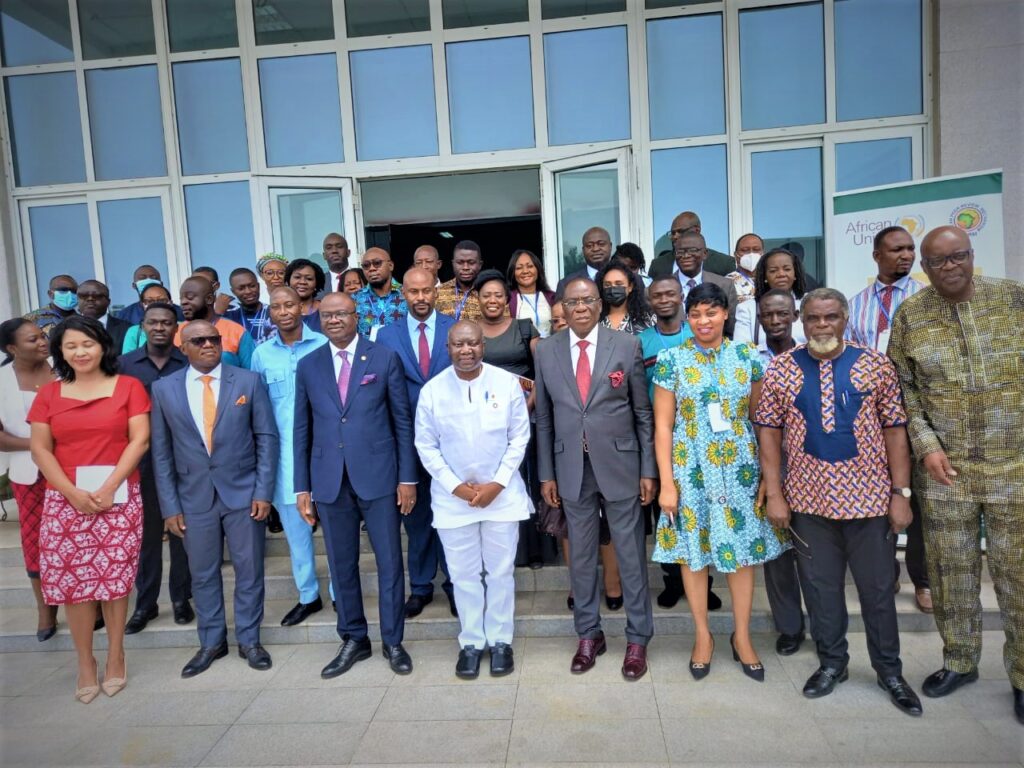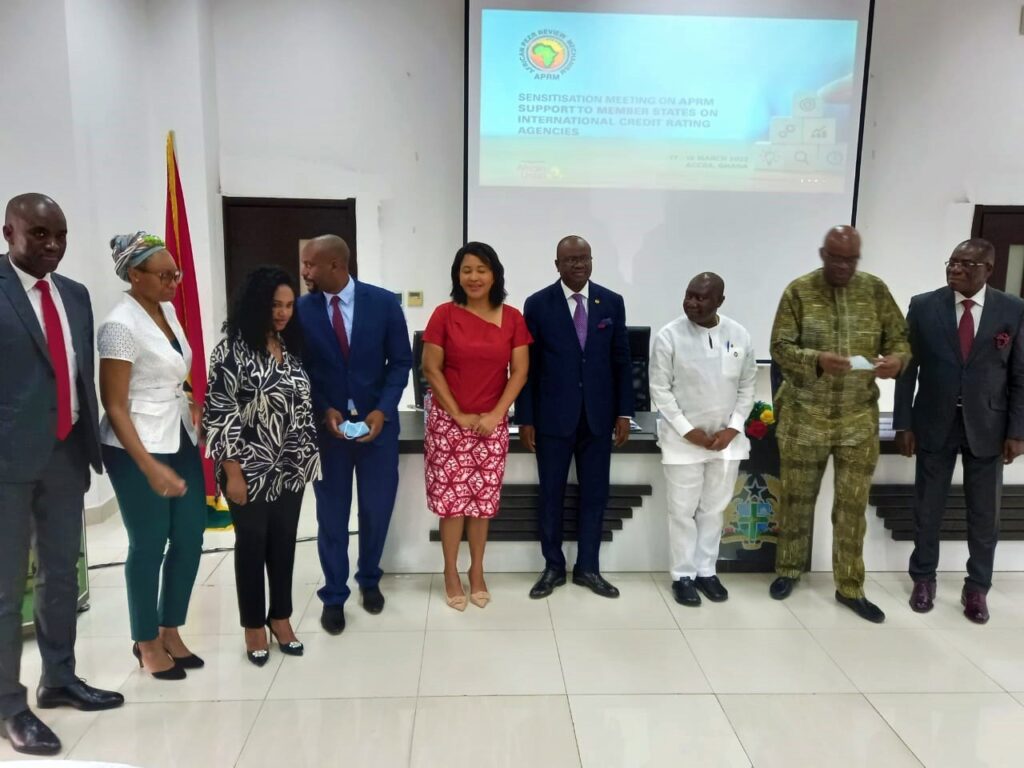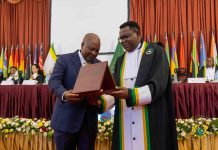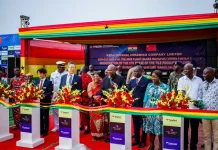In January 2017, the African Union (AU) Assembly of Heads of States and Governments adopted a Decision Assembly/AU/Dec. 631(XXVIII) at its 28th Ordinary Session held in Adis Ababa, Ethiopia, in January, 2017directing the African Peer Review Mechanism (APRM), a specialized governance organ of the African Union, to “provide support to AU member states in the field of Rating Agencies.”
The Decision was necessitated by a collective interest among African countries to address the challenges of chronic low credit ratings by the three leading international credit rating agencies – Standard and Poor’s (S&P), Moody’s Fitch.
Recently, the challenges of poor credit ratings have become more apparent when African countries suffered a record number of sovereign rating downgrades due to the outbreak of the COVID-19 on the continent in March 2020, with more than 30 out of 32 countries now rated ‘junk status’.
The impact of these rating downgrades has been far-reaching and continues to threaten the sustainability of public debt on the continent.
In the implementation of the African Union mandate, the APRM has developed a Policy Framework of mechanisms for the provision of support to capacitate the African countries in their engagements with international credit rating agencies and also engage International Credit Rating Agencies to employ scientific methods of risk assessment that do not disadvantage African countries.
As part of its support mechanism, the APRM would want to field a sensitization support workshop in Ghana.
MISSION PURPOSE AND OBJECTIVES
The purpose of the sensitization workshop is to inform key stakeholders of the APRM work on credit ratings and to discuss the challenges and offer support to Ghana in its pre-rating preparatory phase, facilitate a systematic credit rating assessment exercise, manage the post-rating appeals and the implementation of admissible recommendations.
This is aimed at improving the outcomes of future credit rating reviews for through enhancing the engagements between international rating agencies and the representatives of the government.
The specific objectives are as follows;
Sensitize the government of Ghana of APRM work on credit rating, Sensitize various sectors for a coordinated approach on policy position, Assess the challenges faced by government and stakeholders on credit ratings, Assess the preparedness and coordination of stakeholders in Ghana to adequately engage rating agencies in upcoming credit rating assessment exercises.
Assess the National Treasury’s strategy on credit ratings, Assess the implementation of credit rating review recommendations, Assess the regulation of the credit rating industry.
PARTICIPATING INSTITUTIONS
The mission team is engaging with the following institutions:
The National Treasury and Planning (credit rating liaison, public debt management office)
Ghana Securities Exchange Commission
The Central Bank of Ghana
Representatives of the banking sector
Representatives of National Chamber of Commerce and Industry
Office of the IMF representative in Ghana
Office of the World Bank representative in Ghana
Representatives of Academics from Business Schools
OUTCOME OF THE MISSION
The following are envisaged outcomes of the sensitization mission on credit rating:
Key stakeholders sensitized about APRM work on international credit ratings.
Key findings and recommendations to be documented in the African Union-APRM Sovereign Credit Rating Review report, a continental biannual publication.
AUDIENCE OF THE OUTCOMES REPORT
The report will be a basis for discussions in APRM’s period meetings with Moody’s Fitch and S&P Global.
The findings and recommendations will be shared with the relevant stakeholders in Ghana for implementation in order to improve future credit ratings.
The mission findings and recommendations will be documented in the next edition of the African Sovereign Credit Rating Review report, which has a global audience of investors, rating agencies and researchers.
In the spirit of experience sharing, and peer learning, the findings will be presented on the African Information Exchange workshop, an information-sharing platform for the AU Member States.
The Report will be validated and ratified through the AU Organs, Association of African Central Banks (AACB) Financial Stability Board (FSB), Specialised Technical Committee (STC) of Ministers of Finance, Monetary Affairs, Economic Planning, and Integration), and APRM structures (Focal Points, Panel of Eminent persons, and Methodology Forum).
SENSITIZATION MISSION: ON THE AFRICAN PRINCIPLES AND GUIDELINES ON CORPORATE GOVERNANCE
In the light of the mandate of the APRM, on the continent to promote and raise the level of good governance in member states, the APRM has developed the African Principles and Guidelines on Corporate Governance (“African Principles”).
This project is firmly anchored in the recognition that the private sector is the engine of sustainable development on the continent and that good governance is the foundation of private sector development.
There is a global consensus from academics, practitioners, and policymakers on the positive effects of corporate governance, that well governed companies, as well as attracting domestic investment and ensuring greater inflows of foreign direct investment.
The recently developed African Principles aim to adapt a dominant paradigm to suit the needs of the continent; in terms of socio-economic goals envisaged on the African Union Agenda 2063, “The African We Want.”
They give particular importance to social logic, which recommends a more open, qualitative, humane and inclusive approach, in line with the African shared. They take into account best practices in the world while remaining cognizant of the particularities of the African business community, given that the dominant sectors are the SMEs, family-owned businesses and the informal sector.
The principles further seek to enhance the current continental integration agenda of the Africa Continental Free Trade Area (AfCFTA) as they will contribute towards the harmonization and coherence of corporate governance practices on the continent.
Development of the African Principles
The African Principles were developed following extensive stakeholder consultations with the private sector, policymakers, and representative Associations of large and SMME entities and the Institutes of Directors from 24 Member States in Africa.
APRM met with and engaged with stakeholders from 14 African member states, including three in the Maghreb Region (Morroco, Egypt, and Algeria (Virtual), four in West Africa (Cote d’Ivoire, Ghana, Senegal, and Nigeria) three in Southern Africa (South Africa, Namibia, Mozambique) and two in East Africa (Kenya and Ethiopia) Virtual.
In December 2021, the final document will be presented to the Specialized Technical Committee on Finance, Monetary Affairs, Economic Planning, and Integration of the African Union (AU) prior to being presented before the Assembly of the Heads of State for Approval in 2022.
THE SENSITIZATION WORKSHOP IN ACCRA GHANA
In partnership with the Institute of Directors in Ghana, the Ghana Enterprises Agency, and the Ghana Chamber of Commerce, the APRM is organizing a workshop to present the African Principles to relevant stakeholders in Ghana.
The intended participants are private sector entities, Institute of Directors’ members, policymakers, regulators, Chambers of Commerce and other relevant stakeholders in Accra.
Given the recent announcement for the development of the Ghana Code of Corporate Governance, it is an opportune time to meet with and support relevant stakeholders in Ghana.
The objective of the workshop is to sensitize the stakeholders on the African Principles and to support relevant stakeholders to improve Corporate Governance practices in the country.
We further aim to support the process of developing the Corporate Governance Code of Ghana. We further intend to obtain feedback and views of the private sector on the African Principles and deliberate on the implementation of the principles and the promotion of good corporate governance in the context of the AfCFTA.
Participants
Private sector (select key sectors) in member countries
Ghana National Chamber of Commerce and Industry
Association of Ghana Industries
Ghana Manufacturers Association
Associations representing the informal sector
Association representing SMEs
Select Large Companies (Compliance Officers)
Select SMEs
Select informal traders
Selected State Owned Enterprises (SOE) SIGA
Industry and business regulators in the relevant countries
Department/Ministry of Trade and Industry
Department/Ministry of Finance
Project Partners
Institute of Directors in Ghana
Ghana Enterprises Agency
Ghana National Chamber of Commerce and Industry
Legal Firms
Auditing Firms
Any other relevant parties








































